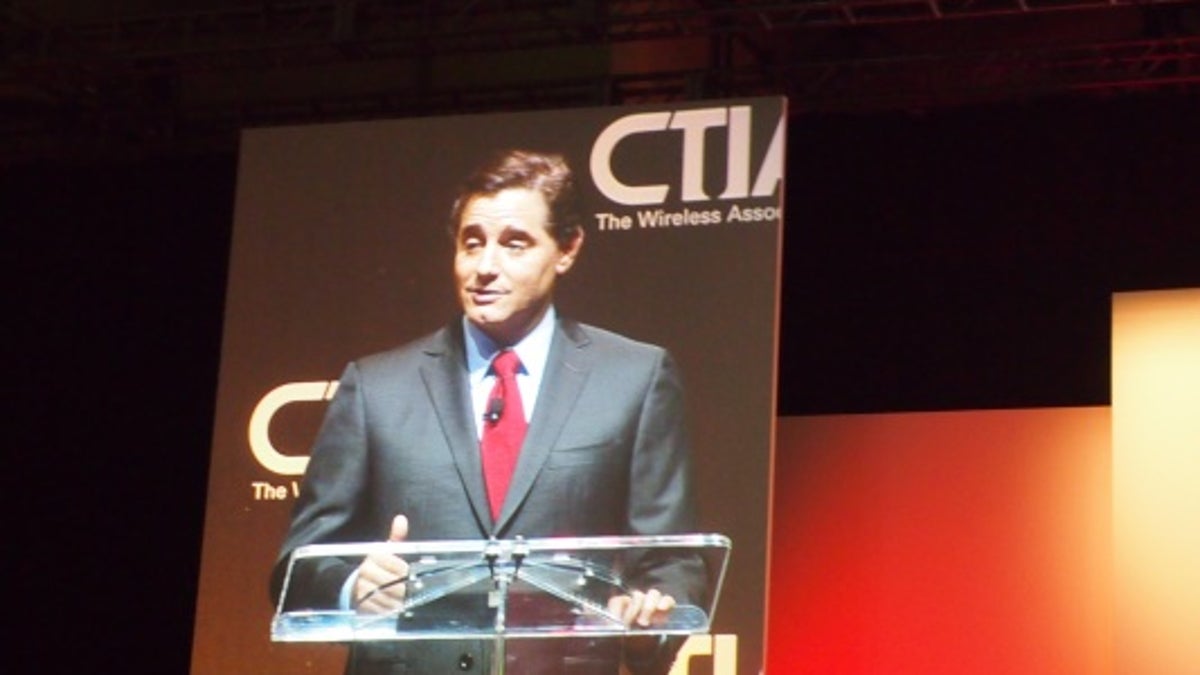
OLYMPUS DIGITAL CAMERA
CTIA 2012 officially started today here in New Orleans, and the main topic of discussion during the show's first keynote was the state of the U.S.'s wireless spectrum. CTIA president and CEO Steve Largent kicked-off the keynote by stating that the wireless industry has gone through its largest one year expansion of cell sites in its history, 12 percent in 2011 to bringing the total number of cell sites to 283,000 nationwide. Largent said the wireless industry is working hard to build out the spectrum that's current available, but added that in the end what the industry really needs is more spectrum.
"More spectrum means more opportunity for you," Larent told the audience. "It sets the table for you to do what you do best, innovate to make lives better." Largent contiuned, "We are working had on your behalf to with congress, the FCC and the administration to make that happen."
To push that point home, FCC Chairman, Julius Genachowski took the stage to explain how the agency was working to move forward with more wireless spectrum auctions, as well as the move to open up white space to the public. Genachowski also touched on the idea of reclaiming old spectrum from outdated technologies like 2G and 3G to build out 4G LTE networks like AT&T has done.
Genechowski further stated that the FCC has set a goal to move in the direction of spectrum sharing, allowing government agencies and private businesses to use the same wireless bands. According to Genechowski, T-Mobile has signed on for an experimental license to test sharing the 1755MHz band with the feds last week.
The chairman also talked up the need to improve wireless coverage in rural portions of the country. And since private industry doesn't have too much insentive to offer such services in rural areas, the FCC will use its Mobility Fund to do just that.
So what does this all mean for the common consumer? Basically an expanded wireless spectrum will translate into improved wireless speeds as a result of a release in system-wide bottlenecks.Think of wireless as a water pipe. The more people that pull water from it, the less each individual can get. But when you make the pipe bigger, more people can grab more water. It's the same thing with wireless spectrum. The larger the amount of spectrum available the more people can grab wireless without having to deal with service slow down. It will be interesting to see how Genechowski's speech translates into new spectrum opening in the coming months.








































